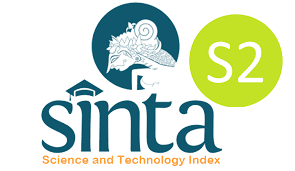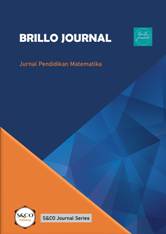Critical Thinking Skills: Comparative Assessment of Further Mathematics and Non-Further Mathematics Students in Public and Private Schools
DOI:
https://doi.org/10.56773/bj.v4i1.57Keywords:
Critical thinking skills, Further mathematics, Gender, Public school, Private schoolAbstract
Critical thinking skills, essential for daily progress and academic success, are rarely studied in relation to Further Mathematics. This study compared the critical thinking skills of further mathematics and non-further mathematics students in Alimosho, Lagos, Nigeria. A total of 310 participants, including 153 further mathematics and 157 non-further mathematics students, were purposively selected from public and private secondary schools. Data were collected using a valid and reliable questionnaire (r=0.82) and analyzed using descriptive and inferential statistics, including frequency, mean, standard deviation, and t-test at a 0.05 significance level. The results revealed a significant difference in critical thinking skills between further mathematics and non-further mathematics students in public secondary schools. Similarly, a significant difference was found in the critical thinking skills of public and private school students, regardless of whether they studied mathematics. No significant difference was observed in the critical thinking skills of students taking further mathematics compared to those who did not, across both types of institutions. The study recommended that mathematics teachers focus on fostering critical thinking skills beyond problem-solving in further mathematics to support students' overall development.
References
Alwehaibi, H. U. (2012). Novel Program to Promote Critical Thinking among Higher Education Students: Empirical Study from Saudi Arabia. Asian Social Science, 8(11), 193–204. https://doi.org/10.5539/ass.v8n11p193
Anderson, L. W., & Krathwohl, D. R. (2001). A taxonomy for learning, teaching, and assessing: A revision of Bloom’s taxonomy of educational objectives: complete edition. Addison Wesley Longman, Inc.
Awofala, A. O. A., & Lawal, R. F. (2022). The Relationship between Critical Thinking Skills and Quantitative Reasoning among Junior Secondary School Students in Nigeria. Jurnal Pendidikan Matematika (Kudus), 5(1), 1. https://doi.org/10.21043/jpmk.v5i1.14011
Awofala, A. O., Lawal, R. F., Arigbabu, A. A., & Fatade, A. O. (2020). Mathematics productive disposition as a correlate of senior secondary school students’ achievement in mathematics in Nigeria. International Journal of Mathematical Education in Science and Technology, 53(6), 1326–1342. https://doi.org/10.1080/0020739x.2020.1815881
Çelik, H. C., & Özdemir, F. (2020). Mathematical Thinking as a Predictor of Critical Thinking Dispositions of Pre-service Mathematics Teachers. International Journal of Progressive Education, 16(4), 81–98. https://doi.org/10.29329/ijpe.2020.268.6
Chukwuyenum, A. N. (2013). Impact of critical thinking on performance in mathematics among senior secondary school students in Lagos State. IOSR Journal of Research & Method in Education, 3(5), 18–25.
Evendi, E., Al Kusaeri, A. K., Pardi, M. H. H., Sucipto, L., Bayani, F., & Prayogi, S. (2022). Assessing students’ critical thinking skills viewed from cognitive style: Study on implementation of problem-based e-learning model in mathematics courses. Eurasia Journal of Mathematics, Science and Technology Education, 18(7), em2129. https://doi.org/10.29333/ejmste/12161
Firdaus, F., Kailani, I., Bakar, M. N. Bin, & Bakry, B. (2015). Developing critical thinking skills of students in mathematics learning. Journal of Education and Learning (EduLearn), 9(3), 226–236.
Hananto, R. B., Kusmayadi, T. A., & Riyadi. (2018). Analysis of the critical thinking process of junior high school students in solving geometric problems by utilizing the v-a-k learning styles model. Journal of Physics: Conference Series, 1013(1), 012132. https://doi.org/10.1088/1742-6596/1013/1/012132
Holmes, N. G., Wieman, C. E., & Bonn, D. A. (2015). Teaching critical thinking. Proceedings of the National Academy of Sciences, 112(36), 11199–11204.
Jacob, S. M. (2012). Mathematical achievement and critical thinking skills in asynchronous discussion forums. Procedia - Social and Behavioral Sciences, 31, 800–804. https://doi.org/10.1016/j.sbspro.2011.12.144
Kang’ahi, M., Indoshi, F. C., Okwach, T. O., & Osodo, J. (2012). Gender and students’ academic achievement in Kiswahili language. Journal of Emerging Trends in Educational Research and Policy Studies, 3(5), 716–720.
Kollosche, D. (2021). Styles of reasoning for mathematics education. Educational Studies in Mathematics, 107(3), 471–486. https://doi.org/10.1007/s10649-021-10046-z
Lawal, R. F. (2019). Problem-Solving Belief, Anxiety and Gender As Predictors Of achievement in Further Mathematics among secondary school students in Mainland Local Government. COEASU Journal of Contemporary Issues, 5, 49–56.
Moneva, J. C., Miralles, R. G., & Rosell, J. Z. (2020). Problem solving attitude and critical thinking ability of students. International Journal of Research -GRANTHAALAYAH, 8(1), 138–149. https://doi.org/10.29121/granthaalayah.v8.i1.2020.261
NCTM. (2000). Principles and standards for school mathematics: Executive summary. https://www.nctm.org/uploadedFiles/Standards_and_Positions/PSSM_ExecutiveSummary.pdf
Odili, G. A., & Asuru, V. A. (2011). Impact evaluation of Further Mathematics curriculum in Nigeria. Educational Research and Reviews, 6(20), 997–1004. https://doi.org/10.5897/ERR10.158
Oluwatusin, E. A., & Dele-Rotimi, A. O. (2017). Effect of further mathematics curriculum on students’ performance in science-based subjects in Senior Secondary Certificate Examination in Ikere Local Government, Ekiti, Nigeria. Mathematical Theory and Modeling, 7(7), 23–33.
Orhan, A., & Tekin, İ. (2022). A Study on High School Students’ Critical Thinking Skills. Sakarya University Journal of Education, 12(2), 344–366.
Ozturk, T., & Guven, B. (2016). Evaluating students’ beliefs in problem solving process: A case study. Eurasia Journal of Mathematics, Science and Technology Education, 12(3), 411–429. https://doi.org/10.12973/eurasia.2016.1208a
Putri, A. G. E., & Wutsqa, D. U. (2019). Students’ Mathematical Connection Ability in Solving Real-world Problems. Journal of Physics: Conference Series, 1320(1), 012066. https://doi.org/10.1088/1742-6596/1320/1/012066
Roya Sherafat, & C. G. Venkatesha Murthy. (2016). A Comparative Study of Government and Private School Students on Their Critical Thinking and Study Habits. International Journal of Indian Psychology, 3(4), 52–60. https://doi.org/10.25215/0304.062
Sarigoz, O. (2012). Assessment of the High School Students’ Critical Thinking Skills. Procedia - Social and Behavioral Sciences, 46, 5315–5319. https://doi.org/10.1016/j.sbspro.2012.06.430
Syafril, S., Aini, N. R., Netriwati, Pahrudin, A., Yaumas, N. E., & Engkizar. (2020). Spirit of Mathematics Critical Thinking Skills (CTS). Journal of Physics: Conference Series, 1467(1), 012069. https://doi.org/10.1088/1742-6596/1467/1/012069
Downloads
Published
How to Cite
Issue
Section
License
Copyright (c) 2024 Olubunmi Adejoke Etuk-Iren, Omolara Fatimah Bakre, Ruth Folake Lawal

This work is licensed under a Creative Commons Attribution 4.0 International License.
The authors agree that this article remains permanently open access under the terms of the Creative Commons Attribution 4.0 International License





